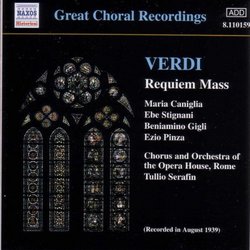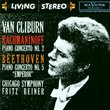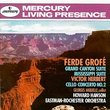| All Artists: Giuseppe Verdi, Tullio Serafin, Rome Opera Orchestra, Beniamino Gigli, Ebe Stignani, Ezio Pinza, Maria Caniglia Title: Verdi: Requiem Mass Members Wishing: 1 Total Copies: 0 Label: Naxos Original Release Date: 1/1/1939 Re-Release Date: 11/20/2001 Genre: Classical Styles: Opera & Classical Vocal, Historical Periods, Early Music, Modern, 20th, & 21st Century Number of Discs: 1 SwapaCD Credits: 1 UPC: 636943115923 |
Search - Giuseppe Verdi, Tullio Serafin, Rome Opera Orchestra :: Verdi: Requiem Mass
 | Giuseppe Verdi, Tullio Serafin, Rome Opera Orchestra Verdi: Requiem Mass Genre: Classical |
Larger Image |
CD DetailsSimilar CDs
Similarly Requested CDs |
CD ReviewsFlaws of Grandeur! Benjamin R. Cox, III | Groveland, Fl United States | 08/29/2003 (4 out of 5 stars) "This was the best Requiem of its time with the greatest solo quartet of its time. Today to our ears, it sounds dated. That's why I gave it four stars instead of five. This recording has flaws, but they are flaws of grandeur! Caniglia was one the greatest italian sopranos, but the voice turned squally in the top. We know that! But she is a always extremely musical and strong in the middle voice. Gigli was the successor to Caruso. He had one of the most beautiful voices in history with a dynamic range capable of huge fortissimi down to the smallest mezzovoce pianissimo.BUT, he also had mannerisms that would not be accepted today. Stignani is always a rock of strength, singing in tune and on pitch. No one has ever sung the bass part better than Pinza. The dating shows in the chorus parts, where that extremely full climaxes tend to crumble, but remember, Serafin was a brave conductor. He was recording huge pieces like Aida and the Requiem in the Rome opera house, before WWII. The technology of the day simply did not permit a real reproduction of what he and the chorus were doing. Another interesting fact is that this was recorded on 1939, on the eve of WWII. All in all, to me, this is a great recording, with great voices, all of which far exceed the limitations of the technology. I would not be without this recording!" Verdi - Requiem Andrew Beyzman | Brooklyn, NY United States | 12/20/2003 (5 out of 5 stars) "Oh, wow!! This recording is a great example of what's missing in today's opera world: four great singers who sing like it is the last piece they'll ever perform! OK, so M. Caniglia can't always attack high B in PPPP, but how many sopranos truly can? Her chest voice seems almost surreal in today's world of tweety-bird sopranos. Gigli, as always, does whatever he wants with his voice and sounds gorgeous! Both Pinza and Stignani are top notch! While it is easy to criticize the sound, I think that, given when this piece was recorded, sound engineers did a fantastic job! This album should be preserved to remind us of glory days of Italian singing tradition. It is simply impossible to duplicate this today!" Golden age Verdi from 1939 pyramidcvv | Western US | 04/23/2007 (5 out of 5 stars) "Tullio Serafin was the artistic director of the Teatro Reale (Rome Opera House) from 1934 to 1943. This historic recording from August 1939 allows us to hear the kind of music this illustrious conductor created with his Rome forces.
First, a word about the recorded sound. The hissing that normally comes with vintage recordings is really not that bad. After the first minute or two, my ears just stopped noticing it. In general, it does not detract much from the music. The only recording fault I would mention is that the chorus sound is sometimes lost during high volume passages involving the soloists. At 72'47", this may be the fastest single-CD Verdi Requiem on record (by comparison: Ferenc Fricsay - 75'28", Guido Cantelli - 77'29"). However, I noticed only one or two passages that sounded "rushed" to me (the Amen ending of Lacrymosa and the end of Hostias). Overall, though, I thought the tempo distribution throughout the piece made sense: exciting passages stayed exciting, relaxed passages stayed relaxed. The soloists, like other Verdi Requiem recordings, were high on name recognition, and in general delivered the goods. You will enjoy the fine trio work in Quid sum miser and Lux Aeterna. But there were a few warts. Maria Caniglia is a dramatic soprano. But while she certainly proved it in her first entrance of the Kyrie, her chant-like opening to the Libera Me seemed out-of-place (the melodramatic sforzandos in the orchestra seemed to be reminding her that she was supposed to sound scared here). She had some noticeable pitch problems, especially in the Recordare duet and the opening of the Agnus Dei. But her high B-flat (sung without portamento) and high C in the Libera Me sequence were right on target. Ebe Stignani also has a very dramatic sound. But she doesn't blend very well with Caniglia especially in Recordare and Agnus Dei. She also has a biazarre pronunciation problem: she is always pronouncing "e" like "a". Words like aparebit, sedebit, adn remanebit become a-pa-rah-bit, se-dah-bit, and rema-nah-bit. It's not a problem with the score: the other soloists say the same or similar words without the change. For whatever reason, she is not saying the words correctly. Beniamino Gigli is a legend, of course, and modern opera fans would be remiss not to hear some of his work. Like Caniglia, he also opens the Kyrie with plenty of dramatic verve. His Ingemisco is a real treat. His powerful high notes sound great even with the dated recorded sound. He swoops a lot between notes, but he always does it tastefully. He's a bit sloppy about following the written score, though, as well as with his (sigh) pronunciation (in-jah-misco?). Listening to Ezio Pinza's lovely voice really does make for "some enchanted evening." This Italian-born bass has a strong sound, not unlike contemporary Verdi Requiem Italians like Furlanetto and Raimondi. The only passage that didn't agree with me was the opening notes of Confutatis which I felt were a little over-articulated. But that was a minor blemish. Overall, I am sure you will enjoy Pinza's work here. The Rome Opera Chorus is a solid group. The sound engineering unfortunately tends to push them a bit too far into the background at times. But there are plenty of moments where their fine work is front and center. The opening Dies Irae and the Libera Me fugue (taken at a moderate tempo despite the rest of the performance) provide much to impress the ears. While my comments have sounded very picky about this recording, I would nevertheless be the first to recommend it, especially to Toscanini fans who are interested in other historic recordings of the Verdi Requiem. The sheer immensity of golden age talent that is present here, made available at Naxos' budget price, makes this an album that any collector will prize. Texts and translations included. The CD is divided into a VERY generous 19 tracks." |













